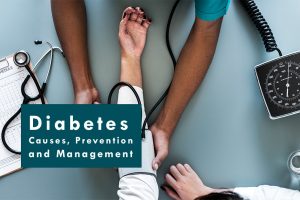A bleeding problem is a condition that influences how your blood ordinarily clumps. The thickening system, otherwise called coagulation, changes blood from a fluid to a clotted one. At the point when you’re harmed, your blood ordinarily starts to clump to forestall a monstrous loss of blood. At times, certain conditions keep blood from thickening appropriately, bringing about weighty or delayed dying. Bleeding can result from either too few or strange platelets, unusual or low measures of coagulating proteins.
Haemophilia is maybe the most notable acquired bleeding issue, in spite of the fact that it is somewhat uncommon. For the most part, it influences guys, and many more individuals are influenced by von Willebrand sickness, the most well-known acquired bleeding issue.
Bleeding issues can cause strange bleeding both outside and inside the body. A few issues can expand the measure of blood leaving your body. Others cause bleeding to happen under the skin or in fundamental organs, like the cerebrum.
Causes of bleeding disorders:
Excessive bleeding disease frequently fosters when the blood can’t cluster as expected. For blood to clump, your body needs blood proteins called coagulating variables and platelets called platelets. Typically, platelets bunch together to frame a fitting at the site of a harmed or harmed vein. The coagulation factors then, at that point, meet up to shape fibrin coagulation. This keeps the platelets set up and keeps blood from streaming out of the vein.
In individuals with bleeding problems, be that as it may, the thickening variables or platelets don’t work how they ought to or are hard to find. At the point when the blood doesn’t cluster, extreme or delayed bleeding can happen. It can likewise prompt unconstrained or abrupt bleeding in the muscles, joints, or different pieces of the body.
Most bleeding problems are acquired, which means they’re passed from a parent to their kid. Be that as it may, a few issues might create because of other ailments, like liver sickness.
The bleeding disorder may also be due to the deficiency of:
- Decreased red blood cell count
- Deficiency of Vitamin K
- Side effects due to a few certain medications
Signs of a bleeding disorder in women:
- Substantial bleeding during the menstrual cycle (period) that can incorporate
- Bleeding that endures longer than 7 days from the time bleeding begins until the time it closes
- Flooding or spouting of blood that limits day-to-day exercises, like work, school, exercise, or social exercises
- Passing clumps that are larger and
- An analysis of “low in iron” or having gotten treatment for weakness.
Side effects of regular bleeding that can incorporate
- Nosebleeds that happen for reasons unknown and last more than 10 minutes or that need clinical consideration
- Simple swelling that happens with no actual injury
- Inordinate bleeding after an operation or dental extraction and
- A background marked by muscle or joint bleeding with no actual injury.
Having at least one of the bleeding symptoms above and a relative with a bleeding issue, like von Willebrand sickness or haemophilia.
Ladies and young ladies can likewise have gentle haemophilia. Ladies who convey the quality of haemophilia can have low factor levels, bringing about a finding of gentle haemophilia. Now and then, these ladies are alluded to as “suggestive transporters.” Numerous uncommon factor issues (connect), including factor I, II, VI, VII, XI and XIII inadequacy, influence people similarly. Even though people with bleeding problems have comparable manifestations, for example, seeping into joints and tissues, ladies can encounter added complexities during pregnancy, work, and conveyance. A few specialists are curious about bleeding issues in ladies, bringing about a significant number of ladies going undiscovered or misdiagnosed. Ladies with undiscovered and untreated bleeding problems dangerous genuine complications. If you know you have a bleeding disorder, you need to reach out to a Hemophilia Specialist.
What happens if bleeding disorders are left untreated?
Blood disorders may contribute to anemia and dangerous bleeding after surgery and childbirth, as well as affecting your quality of life. Women with bleeding disorders may have heavy menstrual bleeding and may tend to miss their regular routine due to side effects from blood loss, including tiredness or the need to manage heavy bleeding.
Without proper treatment, bleeding disorders can lead to:
The need for blood transfusions
Arthritis and breakage of joints
Bleeding into other areas of the body
Hysterectomy or other surgery. Many women who are not aware of having a bleeding disorder may get a hysterectomy or other procedures to help control heavy menstrual periods.
Bleeding disorder treatment may include:
Intake of iron supplements: Your primary care physician might recommend iron enhancements to renew the measure of iron in your body in the event that you have critical blood misfortune. A low iron level can bring about iron insufficiency pallor, and this condition can cause you to feel feeble, tired, and dizzy. You might require a blood bonding if indications don’t improve with iron supplementation. You can reach out to a Blood coagulation disorder treatment in case you are dealing with one.
Transfusion of blood: A blood transfusion replaces any lost blood with blood taken from a benefactor. The donor blood needs to coordinate with your blood classification to forestall confusion, and this method must be done in the emergency clinic.
Some bleeding problems might be treated with practical items or nasal showers. Different problems, including haemophilia, can be treated with factor substitution treatment. This includes infusing thickening component amasses into your circulatory system, and these infusions can forestall or control exorbitant dying.
You can likewise get new frozen plasma bondings on the off chance that you come up short on specific thickening variables. New frozen plasma contains factors V and VIII, two significant proteins that assist with blood thickening. These bindings should be done in an emergency clinic.







